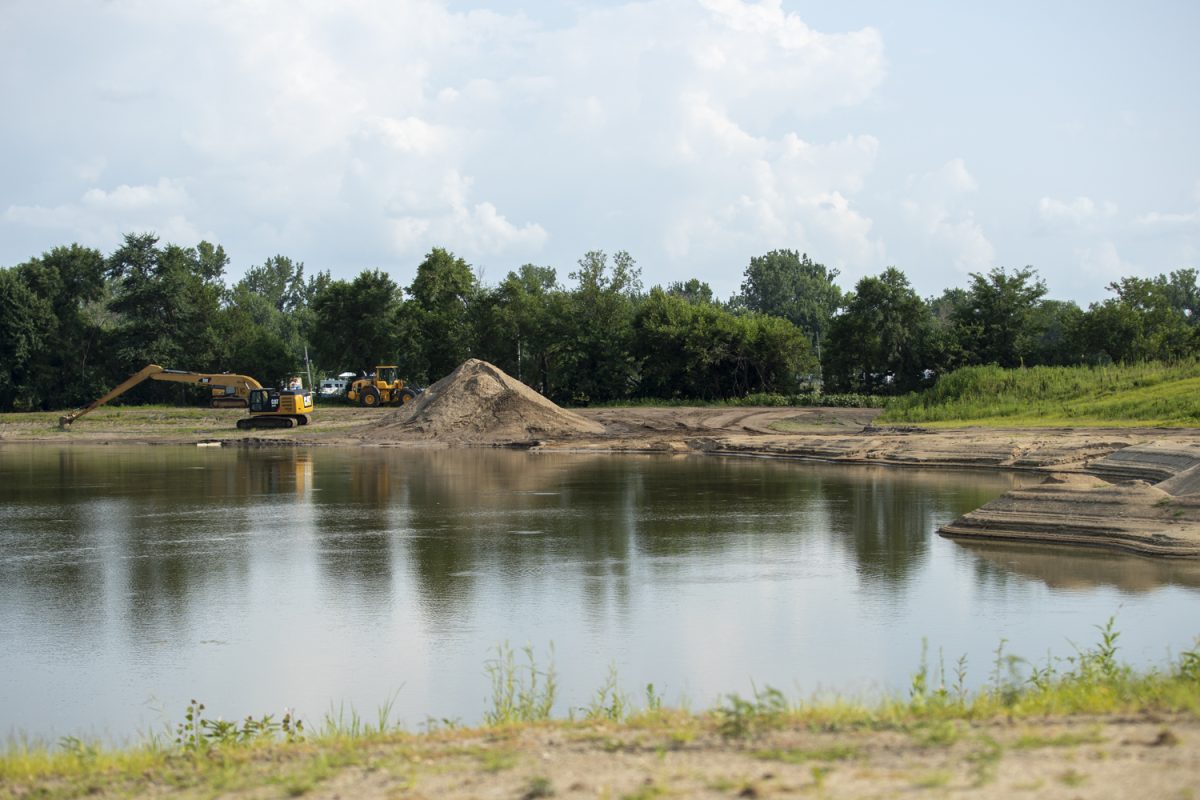After over 30 years of service, Johnson County first responders Tom Trump and Cory Bonnett retired in November from the Johnson County Ambulance Service.
Trump and Bonnett received their “last calls,” a tradition in which the dispatcher gives a heartfelt speech about the retiree over the radio at the end of their last shift, according to posts from the JCAS Facebook account on Nov. 23 and 27 respectively.
Combined, the two have 62 years of service for the county — Trump with 30 years, Bonnett with 32 years.
Johnson County Ambulance Service Director Fiona Johnson said their retirement marks the first wave of career EMTs leaving the profession, as the standardization of emergency medical services didn’t occur until the 1970s.
She said it’s wonderful to have career paramedics retire since it is a physically challenging and demanding job and being able to maintain mental wellness and physical ability for 30-plus years is a testament to the providers and the service.
Bonnett joined the county’s emergency response in May 1991, and Trump joined in November 1993. Both men began EMT training when they were roughly 18 years old.
Trump worked on the county’s event coverage team, standing on the 50-yeard line of Kinnick Stadium for almost every Hawkeye football game. In his 30 years of working on the field, he estimated missing less than 10 games.
Stationed in the opponents’ tunnel, Trump and his team oversaw the safety of the players, coaches, cheerleaders, and band members.
“It always strikes me: You can watch a game on television, [but] when you’re in the stadium to hear the noise, to see the color, and all that goes on and then to turn around and wave to the kids at the end of the first quarter,” he said. “That’s pretty special to be involved and be down there and have that perspective.”
Trump covered his last football game on Nov. 18., the Hawkeyes 15-13 win against Illinois.
He entered into the emergency response field by joining the Solon Volunteer Fire Department and furthered his abilities within the department by taking CPR training, which eventually led to him becoming an EMT.
Although he has retired from the county, Trump will continue to work at his family’s hardware store Solon Trustworthy Hardware, volunteer at Solon’s fire department, and serve on the U.S. Department of Health and Human Services logistics response assistance team.
Trump said the timing was right for his retirement as new technology and new techniques were difficult to keep up with.
“I started and ended my career the same way, working Hawkeye football games,” he said.
Johnson said Trump went out of his way to mentor new EMTs and paramedics and was always willing to help new employees acclimate to the new environment.
In his 32 years as an EMT, Bonnett said his years of service were fulfilling and eventful. During his career, Bonnett helped deliver several babies and said labor calls are one of the most stressful to respond to.
At 55 years old, Bonnett decided to retire because of the strain the job put on his mental health.
“Mental health is something that’s completely overlooked in our profession, even now,” Bonnett said.
He said with the high call volume, first responders never have downtime to debrief and process the usually traumatic things they witness.
According to data provided by Johnson, there was a 106 percent increase in call volume from 2010 to date. The massive call increase came in the middle of Trump and Bonnett’s careers.
Bonnett said when he first started, the department averaged seven calls a day, but now the team responds to closer to 30 calls daily.
Kris Bonnett, Cory Bonnett’s wife, said he experienced nightmares every night as a result of his experience responding to calls.
She said mental health is important for both the people experiencing traumatic events and those trying to save their lives.
In his time as an emergency responder, Bonnett also served as a flight paramedic for lifeguard air ambulance out of Cedar Rapids, an Iowa Speedway paramedic, and worked on a federal disaster team responding to Hurricanes Ivan, Jeanne, Katrina, and Ernesto.
Bonnett hasn’t decided how he will spend his retirement but plans to help on the family farm, spend time with his daughters, and meet the last baby he helped deliver.
“It takes a very special person to be able to dedicate decades of their life to serving others. They’re very compassionate, empathetic, caring people,” Johnson said. “These are the people that I would want responding to my loved ones if they were in an emergency situation.”









